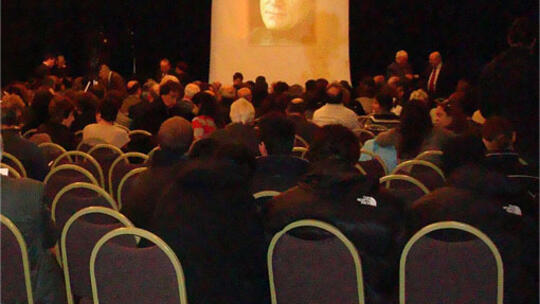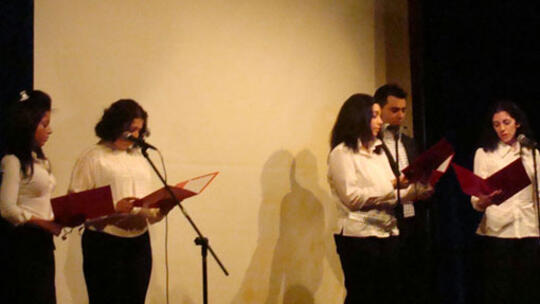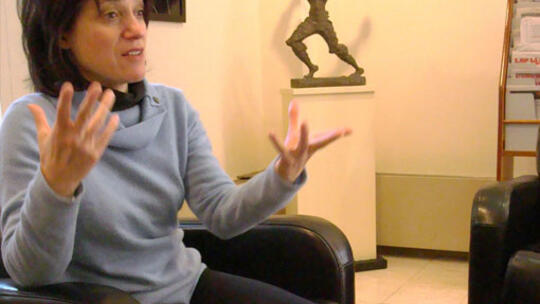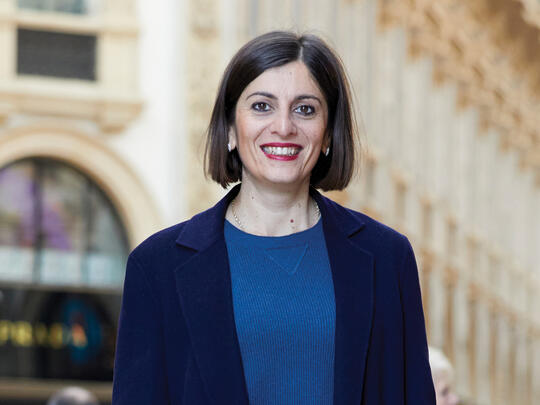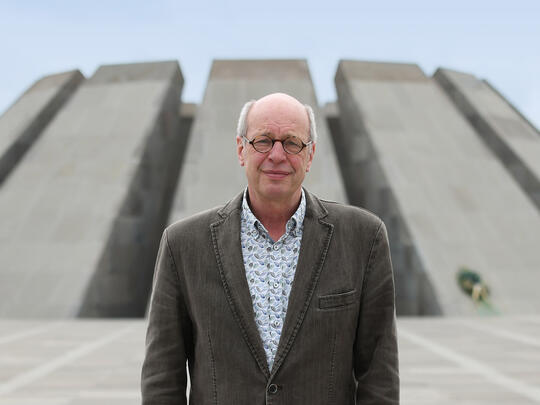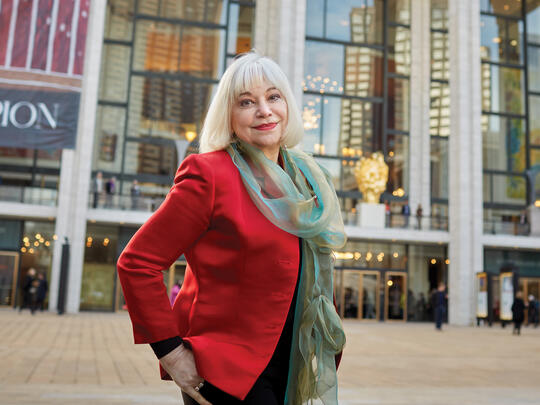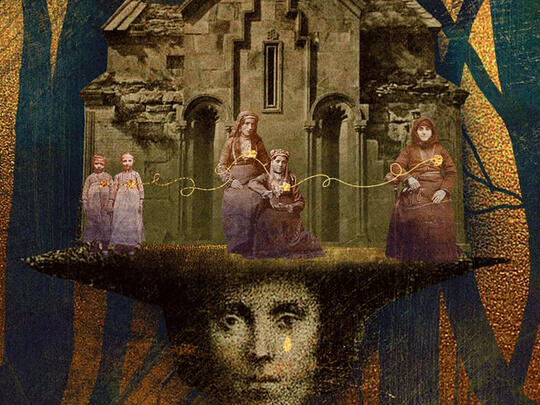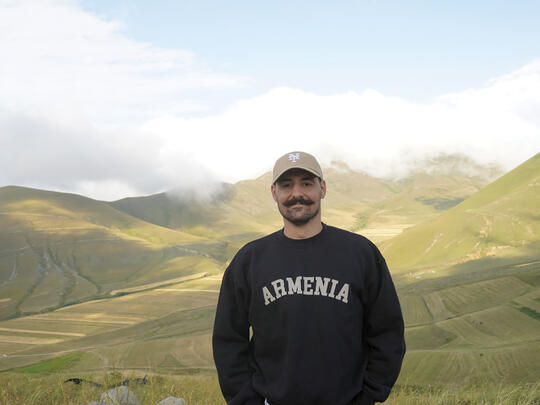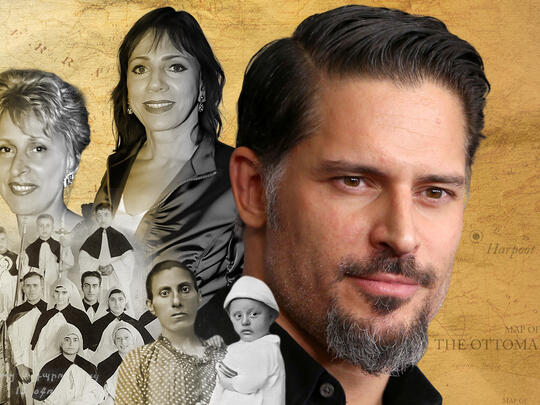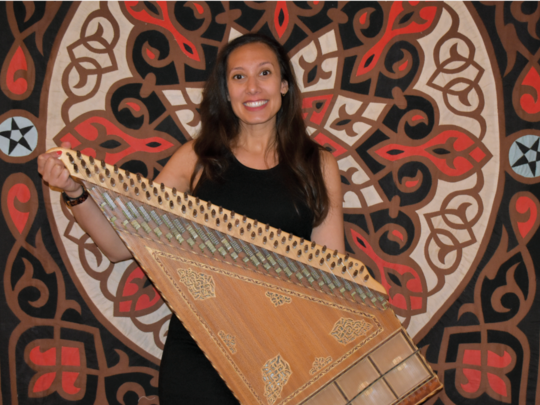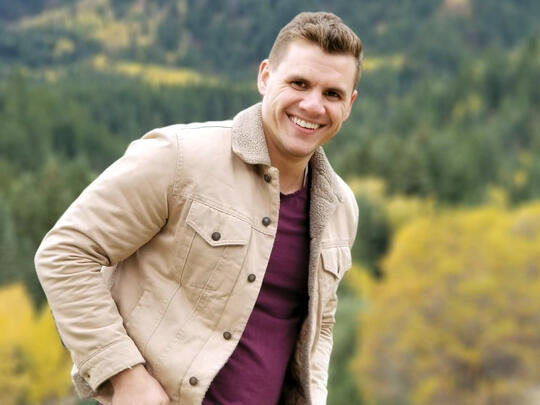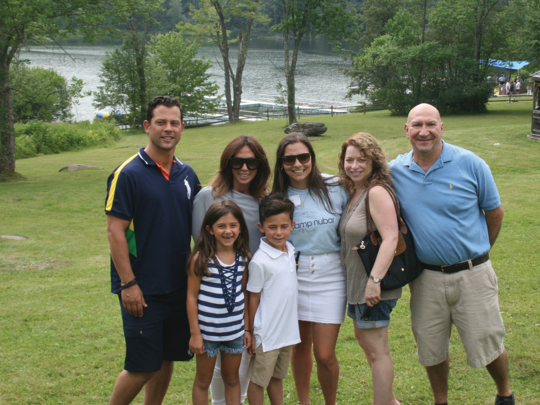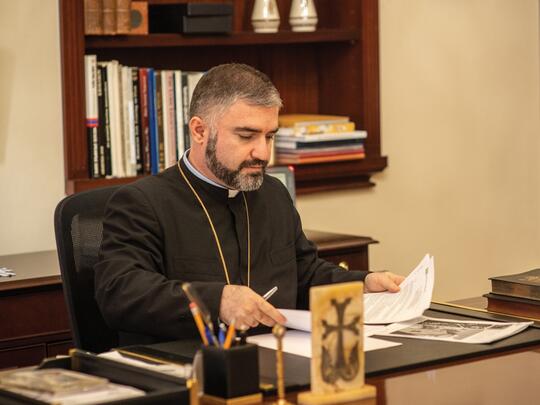
Hrant Dink Remembered by New York-Area Armenian Americans
On Sunday, January, 20, 2008, more than 400 people attended a full day of events commemorating the one-year anniversary of slain Turkish-Armenian editor Hrant Dink. Taking place at the Diocesan Center in Manhattan's Murray Hill neighborhood, the day's events began with the Divine Liturgy, celebrated by Archbishop Yeghishe Gizirian, a service for the Repose of the Souls and a blessing of madagh (memorial meal) at St. Vartan Armenian Cathedral.
Following services, the program, sponsored by a coalition of Armenian-American organizations at the Kavookjian Auditorium, continued with speakers, which included such luminaries as writer and activist Herand Markarian and filmmaker Carla Garapedian, whose critically acclaimed documentary film "Screamers" featured extensive footage of Hrant Dink before his death.
Dink, 52, was gunned down on January 19, 2007, on a sidewalk in Istanbul, outside the offices of Agos, the newspaper he founded in 1996. A total of 19 people, including one teenager who allegedly shot Dink, have been charged in connection with the murder and are now on trial.
The murder sparked an international outcry, galvanized Diasporan Armenian calls for Turkey's recognition of the Armenian Genocide, and shined a spotlight on Turkey's continuing violation of freedom of speech and human rights laws. During his life, Dink encouraged Turks to learn the truth about their past and who they really are, pointed out the inequalities minorities in Turkey faced and hoped that the new generation would embrace their Armenian linguistic heritage.
Dink knew that raising questions about the Armenian Genocide would bring him trouble, Garapedian said, but "he calculated the odds and decided he could survive."
"The fact is Hrant could have backed off. He chose not to," Garapedian said. "He was constantly testing the boundaries of this repressive culture."
Most recently, Dink was best known as the editor-in-chief of Agos, a weekly newspaper published in Turkish and Armenian. "Agos" means "furrow," Markarian said, stressing that Dink's goal was not only to revisit history, but also to plant a seed for the future.
In never-before-seen footage of Garapedian's interview with Dink in his Agos offices, the editor talked about Turks as a people who have yet to come to terms with their terrible past.
"There are Turks who don't admit their ancestors committed genocide. They seem like nice people. So why don't they admit it?" Dink said in the video that was screened during the Commemoration event. "Because they're against genocide and wouldn't commit it themselves, they can't believe their ancestors would have done such things either."
Dink's struggle to improve Turkish-Armenians relations, even as he was accused of insulting Turkishness under the internationally condemned Article 301 of Turkey's Penal Code, and his tragic death, speak to Armenians everywhere, Markarian said.
Markarian also spoke about Dink's early life, his management of the Tuzla Armenian Children's Camp, which the Turkish government shut down in the 1980s, and his work as a journalist.
"Oftentimes, Hrant Dink acted as a translator," said Rachel Goshgarian, director of the Krikor and Clara Zohrab Information Center. "He was a translator between Turks and Armenians in Turkey, he was a translator between Turks and Armenians in Armenia, he was a translator between Armenians in the Diaspora and Turks."
"It is perhaps only in the past year that we have realized the important work of a translator, of our translator, of Hrant," Goshgarian added. "If we truly believe in Hrant's dream, then we have no choice other than to try and become more like Hrant."
Dink's death, Garapedian said, prompts Armenians to seek the "truth of denial" by continuing his fight for Armenian Genocide recognition and expanded freedoms for Armenians and other minorities in Turkey.
"We want to recognize history, not rewrite it," Garapedian said. "We have power. And we have the right to exercise it."
Closing remarks and a prayer were offered by Archbishop Gizirian.
Sunday's event was organized by the Diocese of the Armenian Church of America (Eastern), with the participation of AGBU, the Armenian American Support Educational Center - Hye Doon, the Constantinople Armenian Relief Society, the Diocesan Gomidas Choir, the Esayan-Getronagan Alumni, Inc., the Forest Hills Armenian Cultural Center, the New York Chapter of the Hamazkayin Armenian Educational and Cultural Society, the Knights of Vartan, the Tekeyan Cultural Association, and Tibrevank Alumni, Inc.
Please note that archived content may appear distorted as it has been stripped of formatting and original images.

